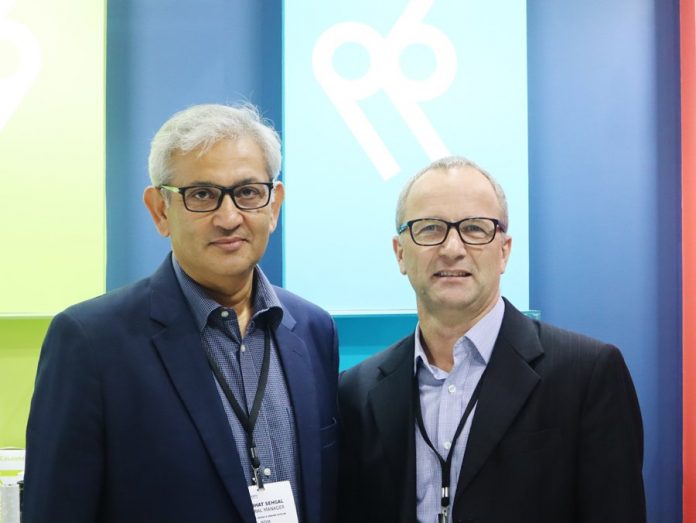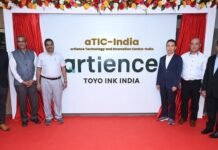
The LabelExpo India opened this morning in the neat, calm and salubrious Expo Centre in Greater Noida. It looks like a terrific show with good lighting and open aisles and excellent stands coming at a time when the industry seems ready for renewal energy to propel its seemingly continuous growth. Even in our quick look we saw several running label presses including four narrow web flexo presses that are being built in India. For two companies, NBG and UV Technologies, this show is the launch pad for their first flexo press. In addition, Monotech Systems is launching its full-fledged digital color label press at Greater Noida.

Make in India doesn’t seem like a mere theme but a reality at the show as global manufacturers are taking part in the country’s label industry’s high growth by investing and upgrading their factories in the country to keep up with growing label demand. We visited the Armor India stand at the show and spoke with its vice president and general manager for Asia, Mark Day and Prabhat Sehgal its vice president and general manager for India. Armor’s factory in Bengaluru manufactures the company’s inkanto branded wax, wax resin and resin thermal transfer ribbons that are used to produce labels for a wide variety of industrial and consumer product applications including garments.
The inkanto thermal ribbons from Armor India carry a very high level of quality assurance and performance attributes that are conveyed by a lifetime guarantee for all inkanto ribbons as well as an online Certificate of Conformity and technical contact available for each ribbon. Day and Sehgal say, “The company’s growth in India has been exponential since the establishment of its 20,000 square foot factory in Bengaluru in 2014. In fact in January 2017, the company moved up to a 45,000 square plant to keep up with demand and continues to invest in both capacity and human resource.”
Labels using inkanto thermal ribbons are being produced at the exhibition that can be applied for product identification and supply chain applications. These applications generally require stringent compliance to global standards and thus demand high quality, consistency and traceability for the entire supply chain.










